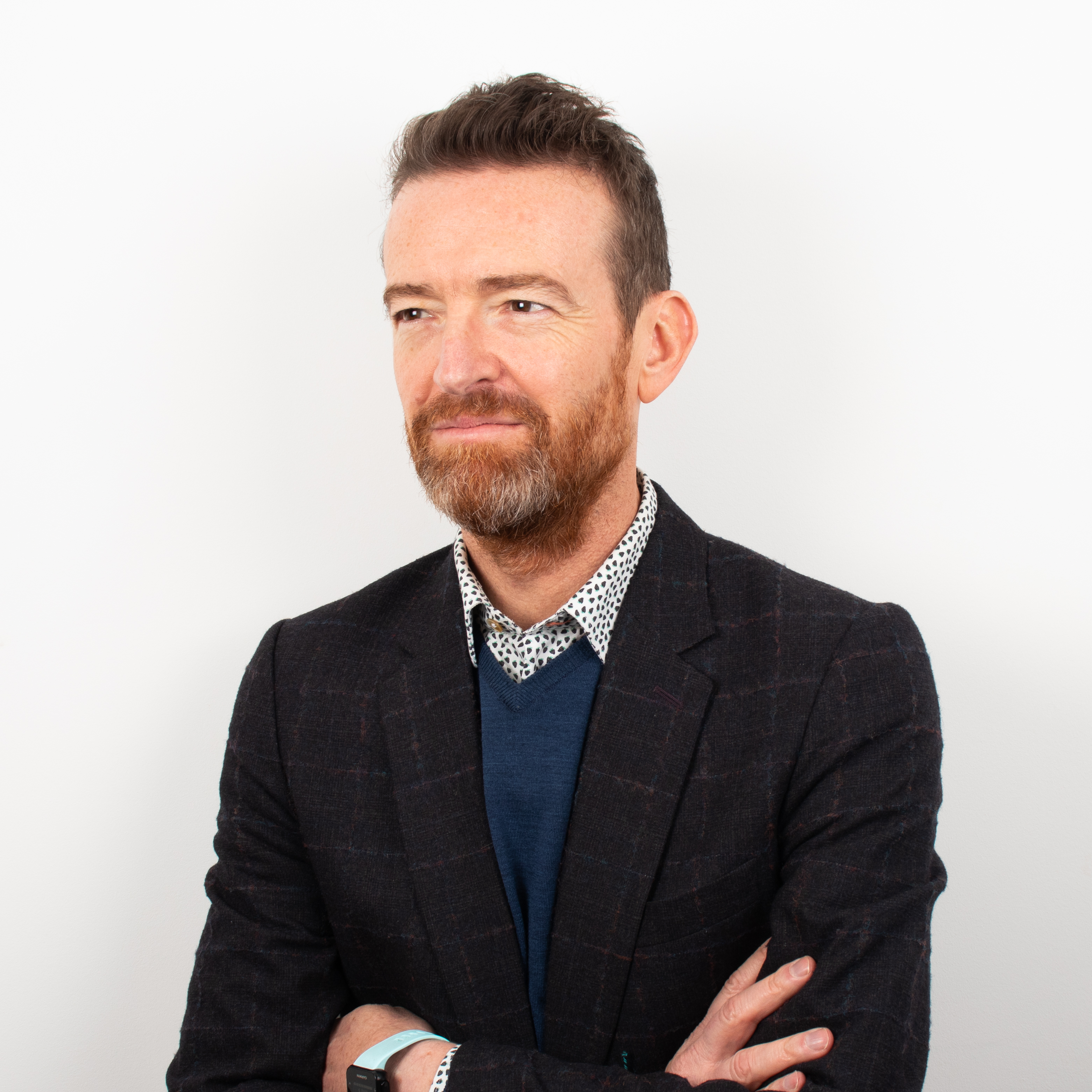Back-and-forth policy shifts and changing economic signals are the new normal. From volte-face tariffs and trade agreements to immigration and international development, there is only one certainty – sudden shocks to established systems are rewriting the rules. In this period of transition, where clear forward guidance is often absent, uncertainty has become a top concern for CFOs globally. This heightened sense of volatility is influencing both market behaviour and consumer sentiment, requiring resilience and agility from brands and the people they serve.
The Impact on Sustainability
Recent shifts have similarly influenced sustainability greatly. The pace and scale of investment in areas such as clean energy and infrastructure continues to affect funding streams, job creation and long-term planning across sectors. These changes are challenging organisations working toward climate commitments and innovation goals.
Simultaneously, there has been increasing scrutiny of corporate diversity, equity and inclusion initiatives, particularly among companies with public or government-facing obligations. Departments are being restructured, programmes paused and language reassessed, to align with evolving regulatory expectations. (Many organisations are reviewing how best to advance inclusive practices while navigating this changing landscape.)
The Era of Disruption
At Kantar, we describe this uncertainty as an Era of Disruption, where fluctuations are the new normal and where marketplace discontinuities will continue to be a feature, not the exception. All macro and micro metrics demonstrate this clearly.
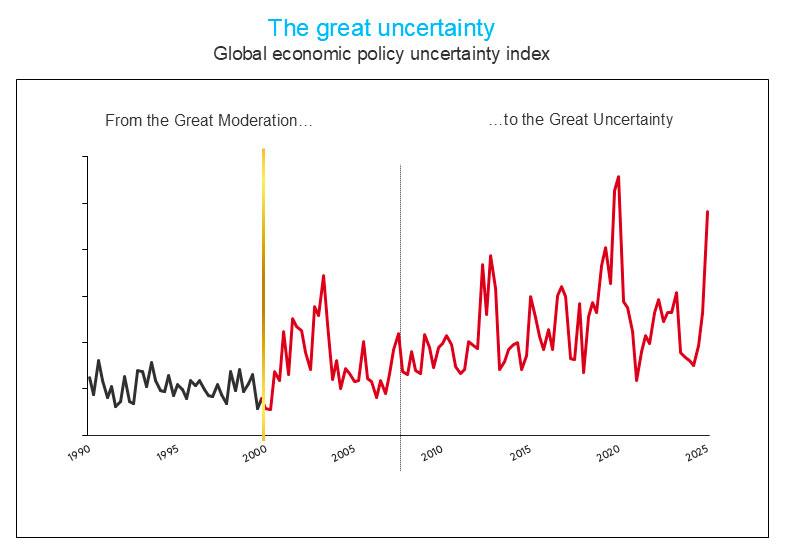
The World Uncertainty Index tracks uncertainty in the local business climates of 143 countries worldwide, across economic, political, technological, public health indicators etc. The emergence of the Great Uncertainty era is clear.
However, most of the standard ways of doing business today were invented during a past that saw greater stability than will be true of the future. Internal business change to address external context change is essential to navigate this turmoil.
The Ever-Growing Imperative: Sustainability
The World Economic Forum’s Global Risks Report is an annual reminder that the greatest disruptor of them all, climate change, is barreling towards us. In the words of Mark Carney, Former Governor, Banks of England and Canada, ‘If some companies and industries fail to adjust to this new world, they will fail to exist’.
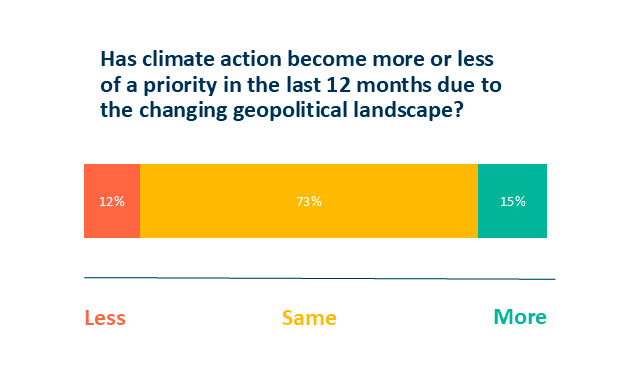
Not for nothing is COP30, opening this week in Belem, Brazil, being heralded by President Lula as ‘the “COP of Truth”, the moment we demonstrate the seriousness of our shared commitment to the planet’. His call to action reflects the need to make change a reality; ‘The era of declarations of good intentions has ended: the time for action plans has arrived’.
Interestingly, the majority of business leaders have maintained or increased their short-term (95%) and long-term (96%) emission targets over the past 12 months. Similarly, 91% of surveyed business leaders have maintained or increased their net-zero transition investments versus 12 months ago.
These far-sighted companies see valuable opportunity alongside risk management. In separate studies, McKinsey and the World Business Council for Sustainable Development (WBCSD) both estimate the economic opportunity represented by the sustainable transition at $12 trillion per year.
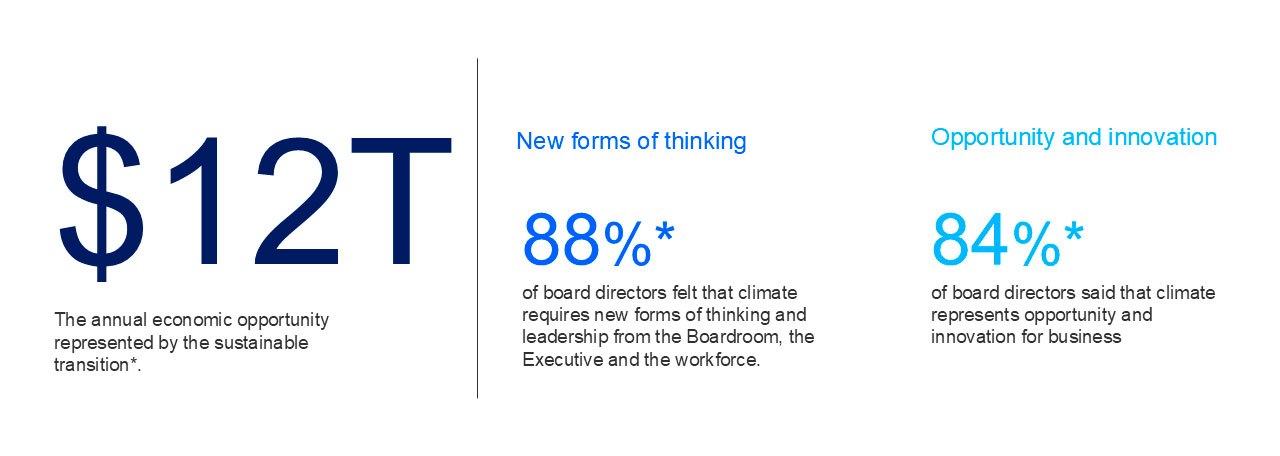
The next decade of business will be defined by companies that recognise sustainability as an economic imperative. In Kantar’s work with the Climate Governance Initiative, 88% of board directors felt that climate requires new forms of thinking and leadership from the Boardroom, the Executive and the workforce, while 84% said that climate represents opportunity and innovation for business. As global markets embed resilience into industrial policy and long-term investment strategies, companies that embrace these changes will be best positioned to lead the next industrial revolution.
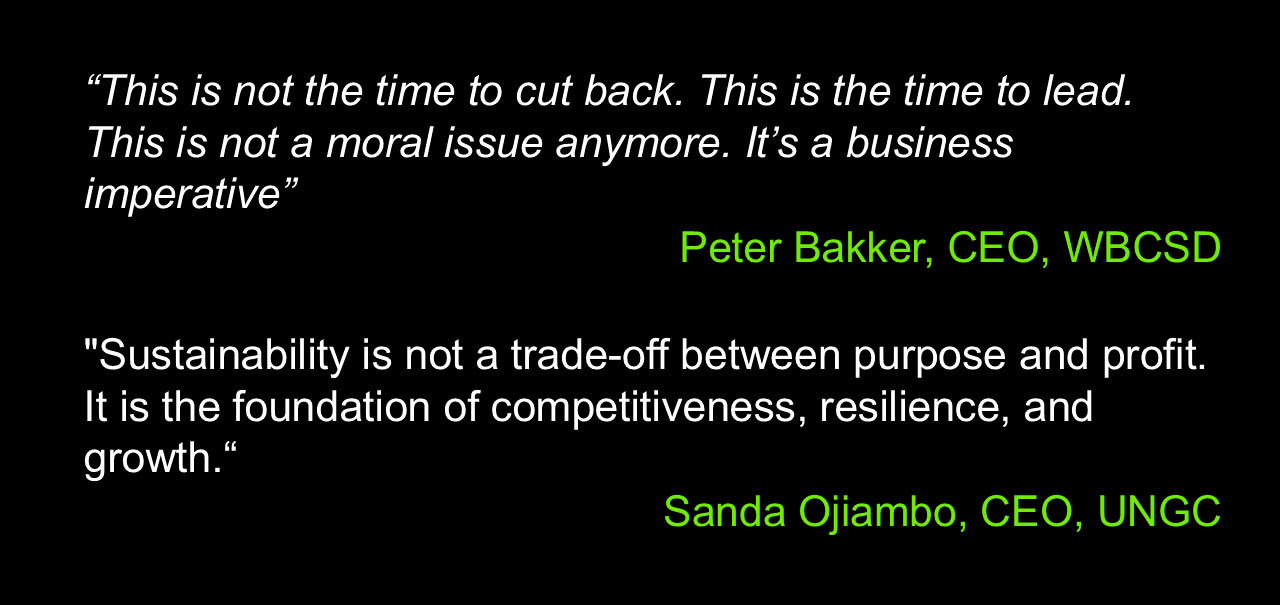
What Do People Truly Want?
What about people - citizens, consumers and employees? Consumers care about sustainability, and their opinions are actually hardening. Kantar data shows that globally, climate and environment-related issues remain people’s top concerns, closely followed by worry about conflicts, which has increased to be a close second. This is especially true for younger cohorts - for many GenZers and Millennials, sustainability is a core part of who they are.
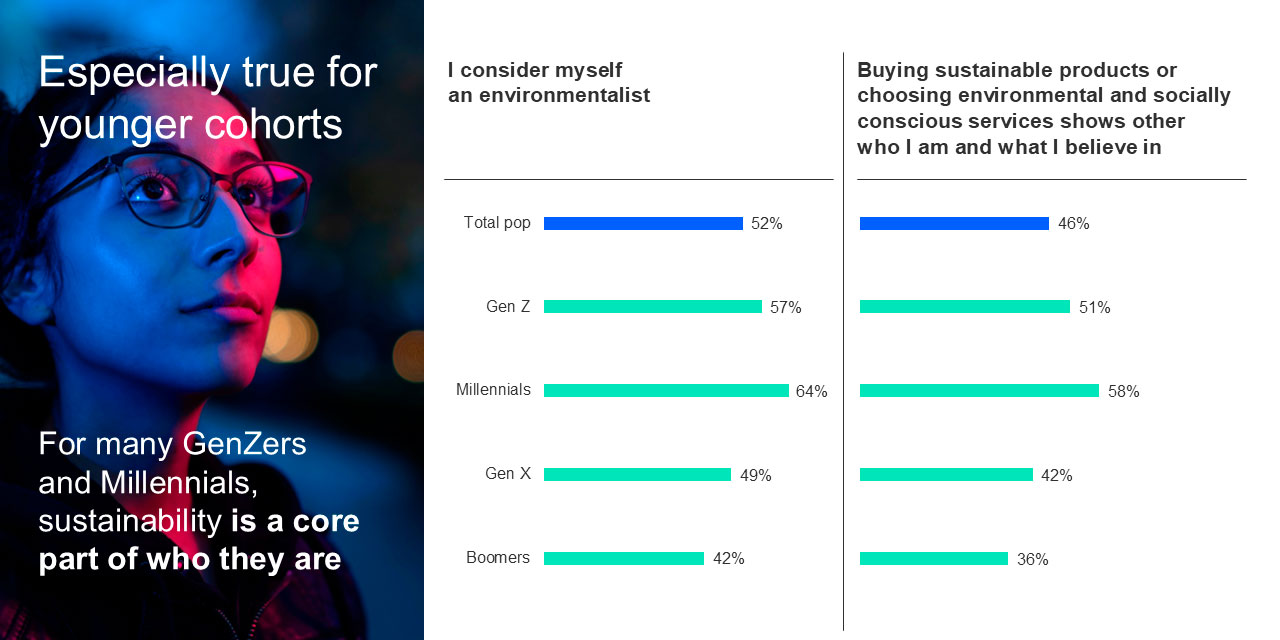
While there has been a slight softening in concern for the environment as other concerns have increased, 67% of people still believe environmentalism is extremely important, because of the increasing frequency, intensity – and critically, proximity - of climate change impacts.
- 3.6 billion people live in areas that are highly susceptible to climate change
- 65% of people feel personally impacted by environmental issues
- In our work with Reckitt, the top consumer concern was ‘protecting myself and my family’ (74%).
A Generational Game-Changer
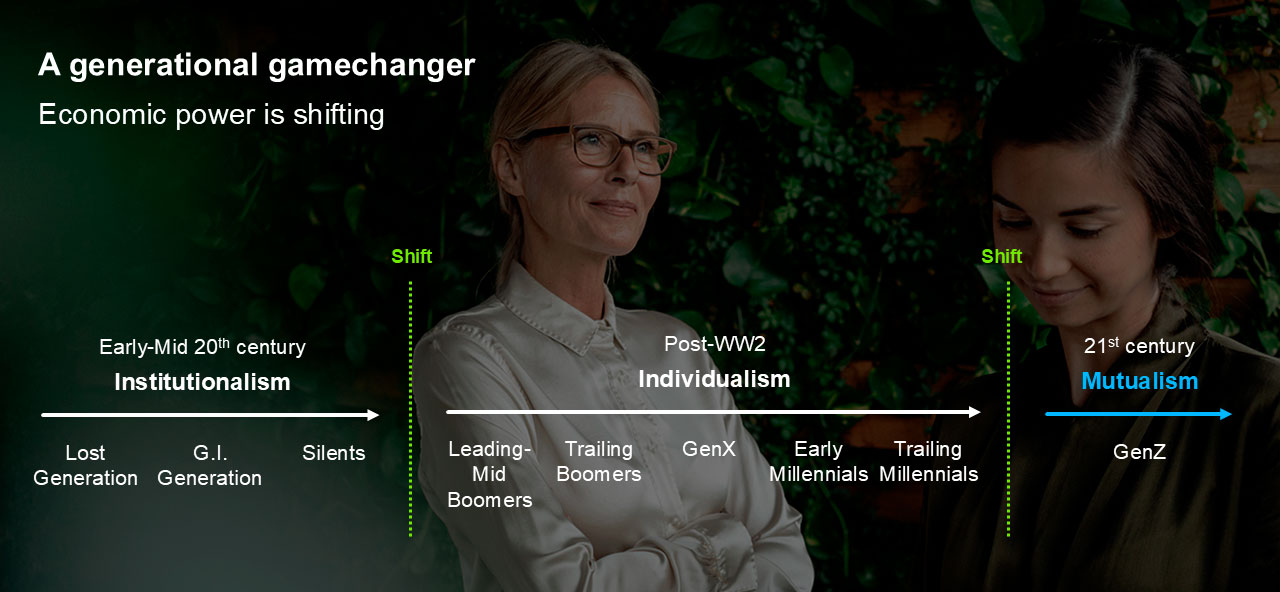
The first fundamental generational break occurred after WWII, and gave rise to individualism. A second generational break is happening now; whereby economic power is shifting to a younger cohort who are turning towards community and seek brands that embrace this new mindset.
In the US alone, The transfer of wealth from baby boomers to millennials and Generation Z is an unprecedented shift in economic power, estimated at $84.4 trillion by the year 2045 (Cerulli’s latest report, U.S. High-Net-Worth and Ultra-High-Net-Worth Markets 2021: Evolving Wealth Demographics)
Jerome Powell, Chair of the US Federal Reserve, sees the impact of these cohorts as transformational: ‘You have seen a world upended, but you have also seen a world that is rapidly changing — sometimes more in one week than some of us have experienced over the course of decades ... This is an extraordinary time, and I believe that it will result in an extraordinary generation’.
The Erosion of Trust
Another signal of change is that people think their leaders lie, according to the Edelman Trust Barometer.
Across sectors, Kantar’s Sustainability Sector Index asked people if they have seen or heard false or misleading information about sustainable actions taken by brands. We were expecting consumer concerns but were amazed to see consistently high levels of perceived greenwashing and/or social washing across all sectors. On average, 52% of people globally say they have seen, or heard, false or misleading information about sustainable actions taken by brands.
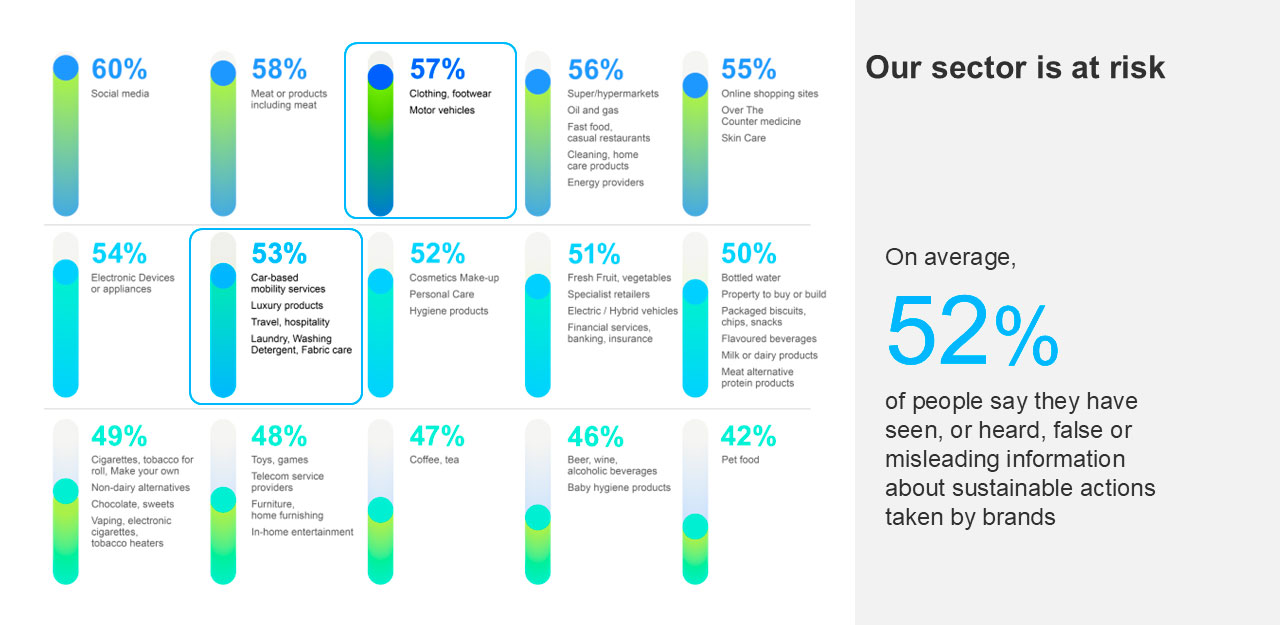
Connecting the What and the How
The most pressing sustainability issues in the eyes of consumers differ by sector. It is important to know the ‘What’ - what brand strengths to defend (Shields) and what to attack with (Swords), to connect your sustainability commitments to your consumers’ key concerns. An example here of the most relevant UN SDGs, for the footwear/apparel industry.
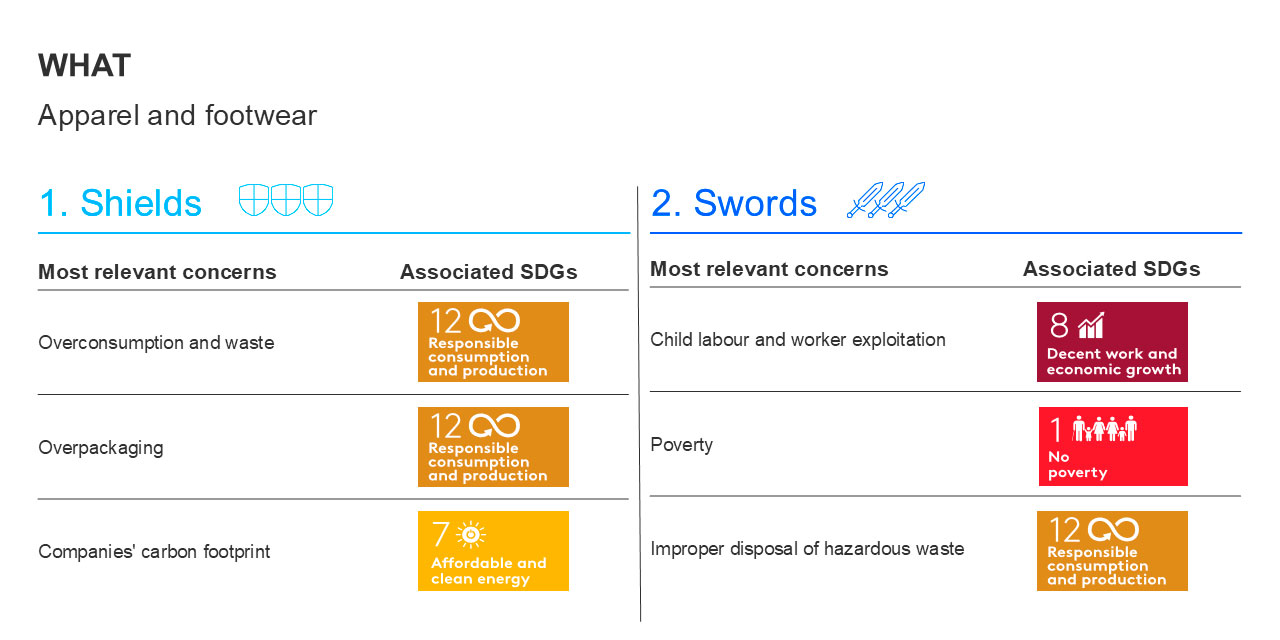
We then dig more deeply to identify those sustainability claims that link to category drivers to enhance consumer appeal and broaden penetration.
The ‘How’ is about ensuring your message is true to your brand, as credibility is the make-or-break factor. The world’s biggest communications evaluation database, LINK, gives us two key learnings for how to communicate sustainability well.
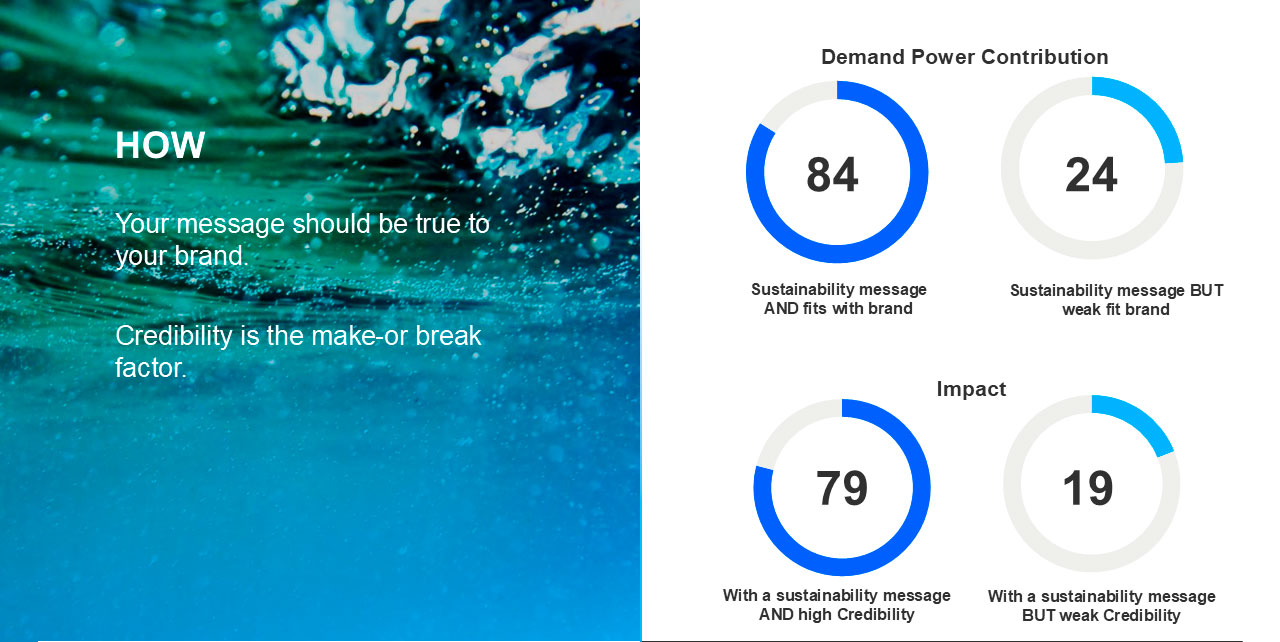
A further aspect of getting the ‘How’ right, is ensuring that successful sustainability communications must leave people feeling positive.
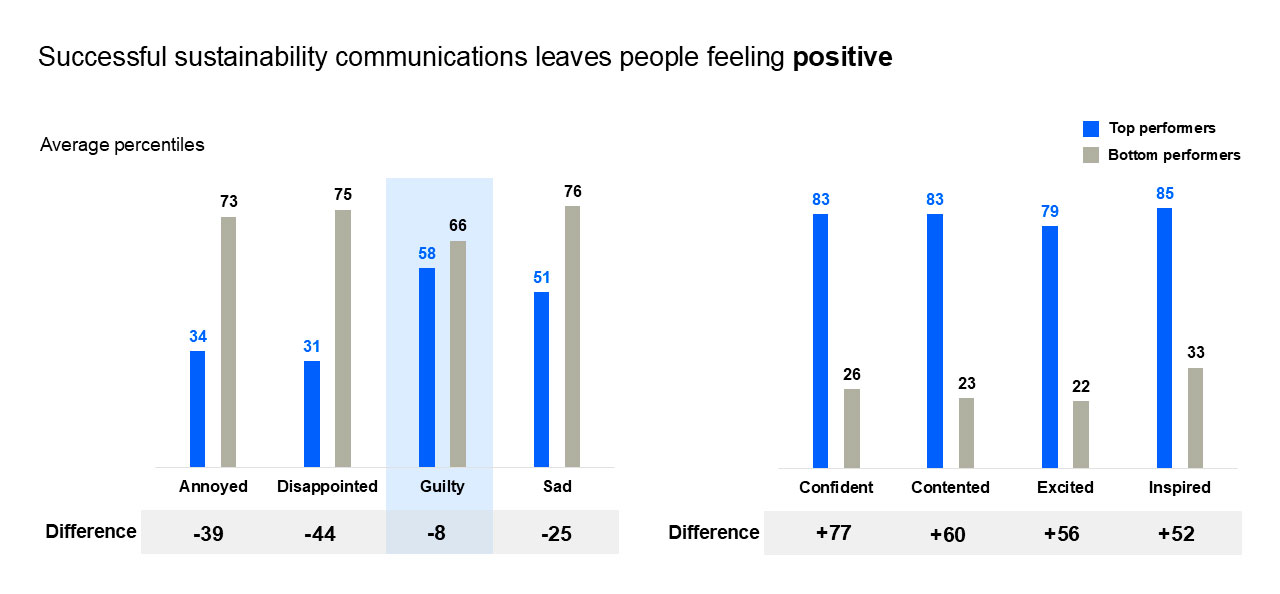
Understanding emotional engagement is an important step in creative effectiveness. Sustainability campaigns perform better if they don’t simply dwell on the challenges but leave people with a more inspiring and positive view of how change may be encouraged.
Silence is not a viable strategy
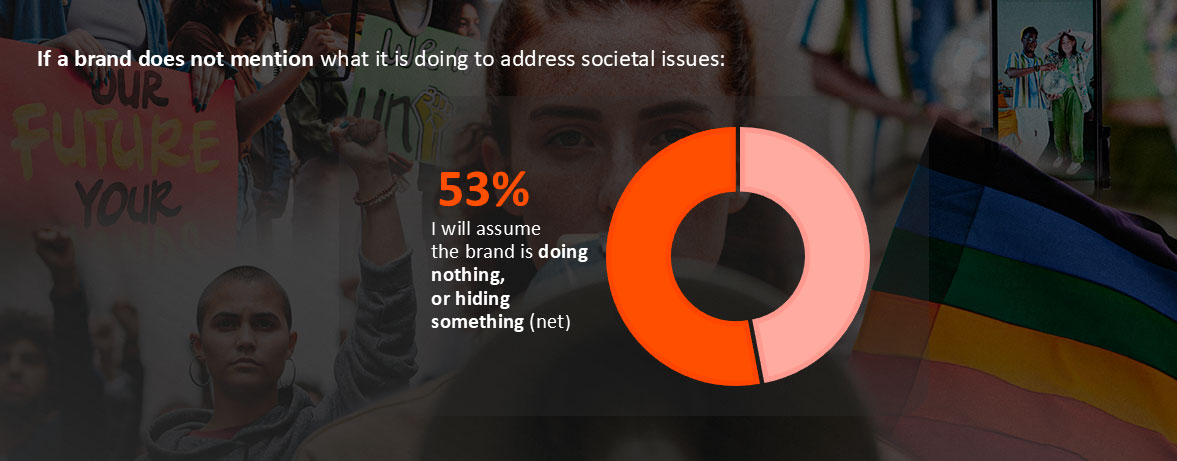
One final thought: given the challenges in getting sustainability and its communication right, it can be tempting to keep quiet. But by saying nothing – we call this greenhushing - you are still saying something, and in this era of expected transparency, it will be noticed.

